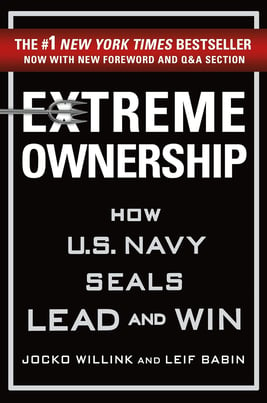CIO at South Florida Regional Transportation Authority
Can you please provide a little introduction about yourself
The South Florida Regional Transportation Authority (SFRTA) operates the Tri-Rail commuter service on behalf of the Florida Department of Transportation. I serve at the Chief Information Officer, a position that is responsible for not only technology within the SFRTA administration building, but also at each of the train stations.
Technology support includes maintenance and upkeep of fare collection equipment, passenger information systems, security cameras, dispatch equipment, and access control devices.
What path have you taken to your current position?
I began my career on a completely educational different path—Hospitality Management. Not too long into it, I realized that it wasn’t for me, and I switched to Public Administration shortly after starting with the City of Hollywood, Florida as a Programmer Analyst. I thorough enjoyed writing code, and I was offered opportunities to learn about other aspects of municipal technology.
Almost halfway through my career with the City of Hollywood, I was fortunate to transfer to another position—taking on a hardware and network-focused role. This led me to the management track where I eventually managed Network, Desktop, and Helpdesk operations. At the end of my career with the City of Hollywood, I accepted an IT Director position with the City of Venice, Florida.
Approximately a year after joining the City of Venice, I completed my Doctoral program with Capella University and was conferred the degree of Doctor of Information Technology.
As I continued my educational journey, my career path also advanced into promotional opportunities with other cities in the State of Florida, eventually landing me as Assistant City Administrator for the City of Bradenton. After several wonderful projects, I longed to return to a more IT-focused role and I then found myself joining the City of Murphy, Texas as its IT Director. I worked with an incredible group of individuals in Texas but some opportunities back in my home state piqued my interest.
Plus, I was far from family. The opportunity with the SFRTA was my chance to “mix it up” and join the transportation sector—something that was foreign to me and allowed me to continue learning.
Has it always been your vision to reach the position you’re at? Was your current role part of your vision to become a tech leader?
Yes, it has been my vision to reach my current position. This was as tremendous opportunity and the twists and turns that you experience in life can end up in wonderful places. I never imagined that I would be a part of the City of Hollywood family for almost 20 years and then move to the other side of the State of Florida—or that 4 years later, other opportunities would become available, first in Florida and then in Texas.
I love doing what I do and being an IT Director has been fantastic. My previous roles have always required hands on work and I love to learn and help. The chance to officially step up to a Chief Information Officer (and in a different field) was too great to not explore and my family has always been supportive of my career choices.
Have you had a role model or mentor that has helped you on your journey?
One of my former Directors was a role model for me. His name is John Barletta, and he was the CIO of the City of Hollywood for 15 years. He was always calm and cool and an eloquent speaker who could make people feel at ease. If it weren’t for him, I would not have advanced into the career path (or at least, not at the pace that I did).
He asked me to try something different and make a role my own—define what it would do. I believe by me doing this, I gave him more confidence to continue to challenge me.
How do you see the role of the technology leader evolving over the next 5 years?
Being able to plan for resources is key. As technology evolves, the needs of users and of the organization—or of those served by the organization will change and finding the resources to satisfy those needs will be critical.
As a technology leader, one needs to work with senior leadership, continue to cultivate talent, train staff, and inform your users on change and how they will be impacted.
What skills do you think leaders of the future will need in order to thrive?
A leader needs to be able to communicate the same message to various audience types. A leader should also know about the operations of other departments—not necessarily be an expert but have the familiarity to discuss problems and potential solutions.
A leader needs to be able to motivate and challenge their staff, not just direct them. Your staff should have the opportunity to flourish into future leaders.
Is there anything in particular that you would still like to achieve in your career or what is the next step on your journey?
I honestly feel that I have hit the pinnacle of my career. I want to learn as much as I can in my role so that I can be a valued asset to my agency, my leadership, my coworkers, and our riding public.
What has been your most significant achievement or proudest moment as a technology leader?
If you want to learn, say “yes” to opportunities. I can think of only one task that I said “no” to. Everything, failures and successes, was a learning opportunity and allowed me to take that knowledge onto other organizations and demonstrate how certain challenges could be overcome.
"If you want to learn, say “yes” to opportunities."
What has been your most significant achievement or proudest moment as a technology leader?
The proudest moment for me dates back several years, when I helped a user, who was afraid of technology—get comfortable with it through an unconventional way. I was asked to create a fleet maintenance system, and the primary user was not technology savvy.
The office was paper based on repair work and the department head and Business Analyst needed an easier way to track repairs and write reports.
I took the opportunity to work with the department head and Business Analyst to explain what I wanted to do and how to ease the tension of the primary user.
While I developed the solution, which took about a year, I had the user play Solitaire. Solitaire taught him how to left-click, right-click, and double-click a mouse. When the time came for him to start testing the program, he was much more comfortable and could easily access the menus to perform the operations. After that, he became very proficient with it and as modification requests came in, I made the program even more functional for him.
How do you ensure that you and your team stay updated with the latest technology trends and industry best practices?
We read a lot. We talk to each other often in the office about topics. We ask questions of our peers and attend industry conferences and seminars as often as possible. The attendance of conferences, trainings, and seminars has been added to our department Business Plan.

If you would like to gain more perspective from Tech Leaders and CIOs you can read some of our other interviews here.
March 3, 2025


